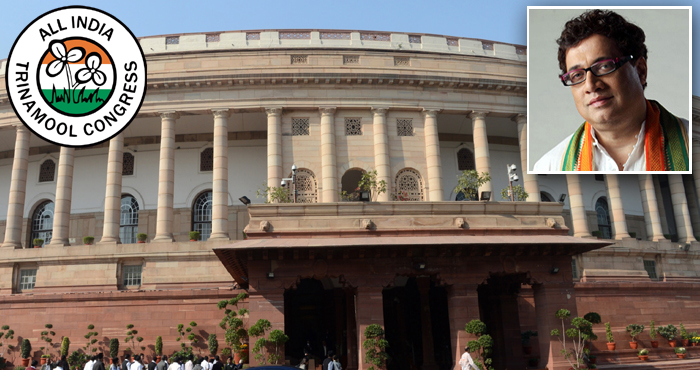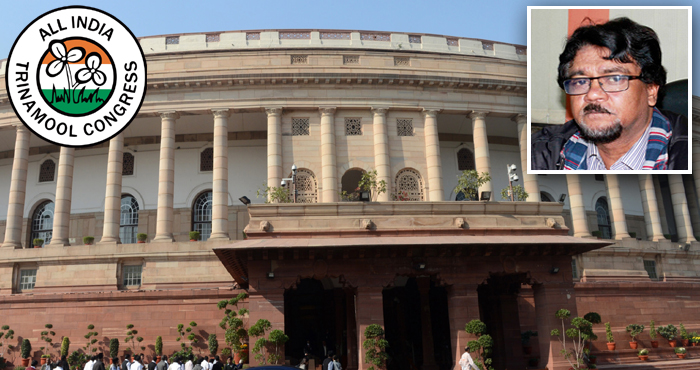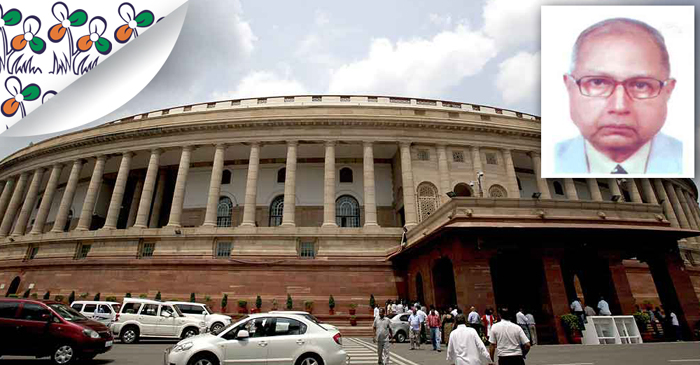Sir, mein aapke madhyam se kuch bolu, use pehle samvidhan ki do dharao ka Mantriji ka dhyan akarshan karna chahta hoon. Dhara number 24 hain ‘Prohibition of employment of children in factories, etc.’ Aur dhara number 23 jo hain woh bahut interesting hain – ‘Prohibition of traffic in human beings and forced labour.’
Sir, 18 saal hone se pehla hum bachhe ko vote nahin dene dete kyun who sahin galat ka faisla nahin kar sakta. 18 saal hone se pehla hum use shaadi karne nahin dete kyun ki uska mansik sthithi nahin hota hain shaadi karne ki. Toh Sir, 18 saal hone se pehle hum usko kaam karne ke liye kaise majboor kar sakte? Sir, mujhe yeh nahin samajh me aata ki 18 saal se pehle who kaise yeh sthithi mein aa jata hain ki faisla kar sake ki mujhe kaam karna chahiye ya nahin karna chahiye aur hazardous hain ki nahin hain? Sir, yeh choice toh un bachhe ko honi chahiye. Hum log kyun choice kar rahe hain ki who hazardous hain ki nahin?
Sir, jaise pichle class bachho ko repeat karwa jata hain jab woh lessons nahin sikh sakte, usi tarah 2012 mein kuch galtiyan jo pichli sarkar kit hi, iss sarkar ka dhyan akarshit karna chahunga main aapke madhyam se. Shayed Mantriji inn galtiyon ko sudhar de.
Sir, pichle saal main eek special mention diya tha isi subject mein. Usme maine sarvakar ko chetavni aura agar karne ka cheshta bhi kiya tha ki, Sir, artiste aur family enterprise main jo hain inko chor di gayi hain. Sir, maaze ki baat yeh hain ki jo hazardous industries hain woh family enterprise mein exempt ho jati hain. Maslan ke taur pe, carpet weaving, jisme kain baar bachhon ke haath mein suin ghus jaate hain, beedi banana, ghar ka kaam karna aur agricultural work. Sir, agriculture mein kuch kuch mein batana chahunga. Agriculture ko non-hazardous main rakha giya hain jab ki insecticides aur pesticides spray karna agriculture ka part hain.
Hamara Debu da hain, former IAS officer, aaj unhone ek maazedar cheez batayi jo mujhe bhi nahin pata thi. Bachho ko jan kheti-bari mein kaam kana hota toh unko mitti patne ke liye ya mitti mein haath sarna parta hain, ki unko nadi mein utarke kaam karna parta hain. Sir, yeh non-hazardous hain, phir bhi kayin bachhe beh jaate, kayin bachhe mitti mein dab jaate, mar jaate hain, magar woh non-hazardous reh jata hain. Iss liye mein chahta hoon, Sir, ki aap ke madhyam se Mantriji ka dhyan akarshit ho iss par bhi.
Sir, 12 lakh bachhe jo hain woh abhi bhi hazardous industries mein kaam karte hain, aur yeh kanoon hone ke bavjoot. Sir, aapke madhyam se mein Mantriji ko puchna chahta hoon ki, 12 lakh bachhon ko hum bacha nahin pa rahe hain, implementation yahan toh ho nahin pa raha hain, yeh kanoon main aur dhilayin agar ho jayegi to implementation mein aur barah nahin baj jaye.
Sir, antarrashtriye community jo hain woh bhi hum par hus raha hain, kyun ki kayin baar unho ne hum logon se agraha kiye hain ki International Labour Organisation ke convention number 182 mein, jis mein child labour ko eliminate karne ki baat hain, na hum uss pe ratify kar rahe hain na uspe koi jawab de rahe hain. Sir, mein chahunga aap ke madhyam se ki Mantriji iss mein bhi kuch roshni dale, iss pe bhi kuch jawab de.
Sir, ek maaze ki baat aur hain. Abhi Naqviji ne kaha ki Standing Committee ki report number 40, usi report main ek bara maazedar observation hain. Yahan par toh hum sirf child aur adolescent kar rahe hain, kayin usko juvenile bola giya hain; par usse bhi ascharyajanak baat yeh hain ki har alag alag Act mein child ko alag alag define kiya gaya. Kahin uski umar 14 batayi jaati, kahin uski umar 16 batayi jati, kahin uski 15 batayi jati hain, uske definition alag alag hain. Mein chahungi ki Mantriji isi Act ke madhyam se child ko ek definition mein bandhe.
Sir, Mantriji shayed jante Right to Education jaise positive steps mein, child labour ghatke 12.6 million se 4.3 million ho gaya. Sir, ek last problem main batana chahunga iss Bill mein. Sir, sexual exploitation aajkal ek naya term aaya hain. Jab 1982 mein yeh Bill banaya giya tha tab sexual exploitation kiya tha hum log nahin jaante they. Adults ke liye sexual exploitation ka kanoon aa gaya lekin bachho ke liye iss Bill mein – yeh jahan kaam karenge, chahein family mein kare, chahein artist mein kare, jahan pe bhi kare inko sexual exploitation ho sakte hain – uske liye is Bill mein koi pravadhan, koi prevention nahin rakha giya hain.
Sir, mere kuch sujhaav hain iss par, ki child ko age mein nahin bandhe par school leaving ka darje diya jaaye, ki jab tak woh school se par ke na nikle, unko koi kaam mein nahin liya ja sakta. Jab district magistrate ko monitoring ke liye kaha ja raha hain, Sir, main chahunga ki local MP yak kam se kam uss elake se joh bhi MP hain unko bhi rakha jaaye, kyun ki who MP us area ko, logon ko samajhte hain.
Sir, hamari Didi ka maanna hain ki bachhe komal phool hote hain, jinko khulne ka mauka honi chahiye. Sir, inko skill development diya jayen, naukri karane ki vajaye inko training diya jaayen ta ki yeh bhi flourish kar sakey.
Sir, kuch Bangal ka examples dena yahan zaroori hain. United Nations ne hamari Didi ne ek programme launch kiya hain jiska naam hain Kanyashree. Sir, Kanyashree kiya hain? Kanyashree yeh tha, Sir, ki hamare logon ko larkiye jo hain unki jaldi shaadi ho jaati hain, yeh aam sachhayi hain. Unko delay karna bahut zaroori tha. Hum log chahte they ki woh pare, likhe, aapne poore potential realise kar sakey. Jab larkiya school mein parai-likhai kar rahin hogi, 18 saal tak, tab unko ek lumpsum rupiya mil sakega aur tab tak unko en mahina bhatta bhi milega. Sir, iska bahut bara asar aaya hain kyunki jisko sacrifice kar diya jaata tha, shaadi karayi jaati thi, woh rukh gayi hain, unko bacha di gayi hain aur woh kam se kam aapni bhavishya khud tair kar rahin hain.
Isko United Nations ne appreciate kiye hain aur Central Government ne bhi appreciate kiya hain. Iska kuch asar ‘Beti Padhao, Beti Bachao‘ mein bhi dekhne ko milta hain. Sir, Yuvashree ek aur karyakram hain. Sir, iske baad hamari Didi ne aur ek interesting karyakram launch kiya hain, uske naam hain Sabuj Sathi. Ausatan mein dekha giya hain ki ek ghanta ek ladki ko samay lagta hain school pahunchne mein. Iske karan zyaadatar bachhe school chor deti. Toh iss ek ghante ko kum kaise kiya ja sakte hain? Toh iske liye Didi ki brainchild hain, un logon ko cycle diya gaya hain. Ab 10 minute se kam mein bhi inn bachhe school pahunchte aur school dropout rate Bangal mein toh bahut kam ho gaya hain. Agar isko Central Government nationally adopt kare toh bahut fayda ho sakti hain, aur inke social development ka bhi khaya rakha jaaye.
Sir, Aparajita bol ke malnourished children ke liye ek programme chalu kiya gaya hain jiske tahat Doordarshan bachhon ko awareness dila raha hain ki bachho ko parao, bachhe ko kaam pe mat lagao.
Sir, anth mein char liney aur bolna chahta hoon. Bachhon ki awaaz mein aapko samvodhan kar raha hoon, Sir: ‘Zara sa kaam hoon mein/ Phir bhi namukammal hoon mein/ Yahan miley hain sabhi/ Unko taalne wali.’
Thank you, Sir.





